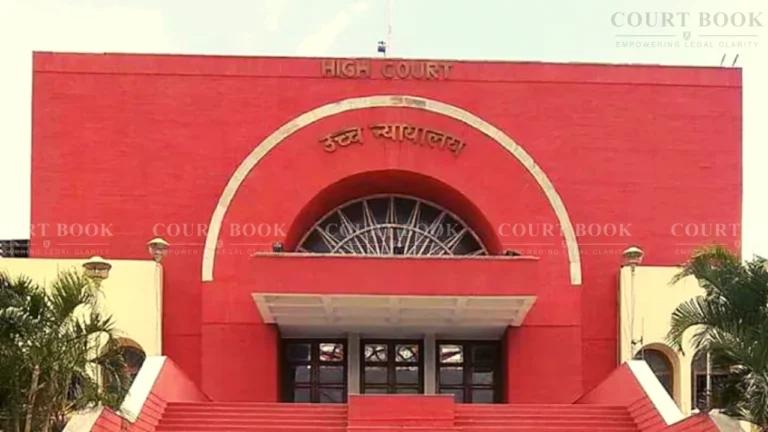The Bombay High Court has dismissed two writ petitions filed by Sud Chemie India Pvt. Ltd., challenging eviction decrees issued by the Small Causes Court in relation to disputed tenancy and alleged unlawful sub-letting of commercial premises in Mumbai's Fort area.
The case revolved around two suits—RAE Suit No. 371/582 of 2007 and RAE Suit No. 370/581 of 2007—concerning two different premises located at Navsari Building, D.N. Road, Fort, Mumbai. The original tenants, now deceased, were Abbas Lalji and Aziz Lalji respectively. Their legal heirs were unknown and were represented through the Registrar of the Small Causes Court.
Read Also:-Bombay High Court: Wife's Allegation of Husband's Impotency in Divorce Plea Not Defamation
The plaintiff, Kotak & Company Ltd., alleged that after the demise of the original tenants, the suit premises had been unlawfully sub-let to Sud Chemie India Pvt. Ltd., a multinational company, without prior consent or knowledge of the landlord. The company had allegedly been in exclusive possession and use of the premises, while the heirs of the original tenants were absent, making no claims of tenancy.
The Small Causes Court had passed eviction decrees on January 6, 2025, citing three grounds—unlawful sub-letting, non-user of premises for over six months, and the landlord’s bona fide requirement of the property. Sud Chemie India did not appeal against the decrees but later filed MARJI applications under Section 151 of the CPC, seeking a declaration that the decrees were null, void, and non-executable due to lack of jurisdiction.
The core argument was that since the premises were allegedly sub-let to a multinational company, they were exempt under Section 3(1)(b) of the Maharashtra Rent Control Act, 1999. This provision excludes properties let or sub-let to certain entities—including multinational companies—from the application of the Rent Act. Therefore, according to the petitioner, the Small Causes Court lacked jurisdiction from the outset.
Read Also:-Bombay High Court Rejects Wife’s Plea to Transfer Divorce Case From Pune to Osmanabad
The learned Judge committed a grave error in ignoring that the exemption under Section 3(1)(b) applies to the premises, not just the relationship between parties rgued Sud Chemie’s counsel.
However, the Court, presided by Justice N.J. Jamadar, found no merit in these submissions. It held that the company, having earlier contested the suit on different grounds—including claiming protection under the Rent Act—could not now take a contradictory stand.
The defendant cannot be permitted to somersault and question the court’s jurisdiction after the decree has been passed, especially when it previously claimed rent act protection the Court noted.
The High Court further emphasized that the Small Causes Court had exclusive jurisdiction in this case since the eviction suit was filed against the original tenant and unknown legal heirs, not just the alleged sub-tenant. The findings of the trial court, including that Sud Chemie was not entitled to rent act protection, did not render the entire decree void.
"The exemption under Section 3(1)(b) is not intended to cover premises unlawfully sub-let, and permitting such arguments would open doors to abuse and manipulation," Justice Jamadar observed.
The Court explained that objections challenging a decree on grounds of inherent jurisdiction are valid only when the decree is entirely without legal foundation—such as when the defendant was deceased or subject matter was outside jurisdiction. In this case, however, the Court held that there was no inherent jurisdictional error since the primary suit was against the tenant and fell squarely under rent control litigation.
The Court also cited several Supreme Court judgments, including Hira Lal Patni v. Kali Nath and Sunder Dass v. Ram Prakash, to support its view that executing courts can only refuse to execute decrees when the decree is a nullity due to lack of jurisdiction—not due to disputed legal interpretations after judgment.
The petitions stand dismissed. Rule is discharged. There shall be no order as to costs, the judgment concluded.
This ruling reinforces the principle that jurisdictional objections cannot be raised post-decree if they contradict previous pleadings, especially in cases involving allegations of unlawful sub-letting and non-user by statutory tenants
Case Title: Sud Chemie India Pvt. Ltd. vs. Kotak & Company Ltd. & Ors.
Case Numbers: Writ Petition No. 10039 of 2025 and Writ Petition No. 10040 of 2025
R.A.E. Suit Nos. 371/582 and 370/581 of 2007















